 W
WAn actor or actress is a person who portrays a character in a performance. The actor performs "in the flesh" in the traditional medium of the theatre or in modern media such as film, radio, and television. The analogous Greek term is ὑποκριτής (hupokritḗs), literally "one who answers". The actor's interpretation of a role—the art of acting—pertains to the role played, whether based on a real person or fictional character. This can also be considered an "actor's role," which was called this due to scrolls being used in the theaters. Interpretation occurs even when the actor is "playing themselves", as in some forms of experimental performance art.
 W
WA badchen or badkhn is a type of Ashkenazic Jewish wedding entertainer, poet, sacred clown, and master of ceremonies originating in Eastern Europe, with a history dating back to at least the seventeenth century. The badchen was an indispensable part of the traditional Jewish wedding in Europe who guided the bride and groom through the stages of the ceremony, act as master of ceremonies, and sing to the bride, groom and in-laws with the accompaniment of klezmer musicians. They also had a traditional role on holidays such as Hanukkah or Purim. Today they are primarily found in Chassidic communities.
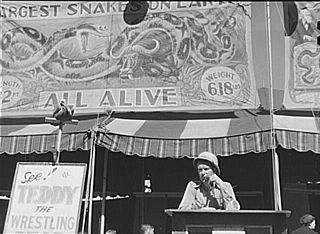 W
WA barker, often a carnival barker, is a person who attempts to attract patrons to entertainment events, such as a circus or funfair, by exhorting passing members of the public, announcing attractions of show, and emphasizing variety, novelty, beauty, or some other enticing feature of the show. A barker would often conduct a brief free show, introducing performers and describing acts to be given at the feature performance. Professional barkers strongly disliked the term and instead referred to themselves as "talkers".
 W
WBenshi (弁士) were Japanese performers who provided live narration for silent films. Benshi are sometimes called katsudō-benshi (活動弁士) or katsuben (活弁).
 W
WA claque is an organized body of professional applauders in French theatres and opera houses. Members of a claque are called claqueurs.
 W
WA clown is a person who wears a unique makeup-face and flamboyant costume, performing comedy in a state of open-mindedness all while using physical comedy.
 W
WA comedian or comic is a person who seeks to entertain an audience by making them laugh. This might be through jokes or amusing situations, or acting foolish, or employing prop comedy. A comedian who addresses an audience directly is called a stand-up comedian.
 W
WA critic is a person who communicates an assessment and an opinion of various forms of creative works such as art, literature, music, cinema, theater, fashion, architecture, and food. Critics may also take as their subject social or government policy. Critical judgments, whether derived from critical thinking or not, weigh up a range of factors, including an assessment of the extent to which the item under review achieves its purpose and its creator's intention and a knowledge of its context. They may also include a positive or negative personal response.
 W
WDance is a performing art form consisting of sequences of movement, either improvised or purposefully selected. This movement has aesthetic and often symbolic value. Dance can be categorized and described by its choreography, by its repertoire of movements, or by its historical period or place of origin.
 W
WA master of ceremonies, abbreviated MC or emcee, is the official host of a ceremony, staged event, conference, convention, or similar performance.
 W
WA film director controls a film's artistic and dramatic aspects and visualizes the screenplay while guiding the film crew and actors in the fulfilment of that vision. The director has a key role in choosing the cast members, production design and all the creative aspects of filmmaking. Under European Union law, the director is viewed as the author of the film.
 W
WFilm editing is both a creative and a technical part of the post-production process of filmmaking. The term is derived from the traditional process of working with film which increasingly involves the use of digital technology.
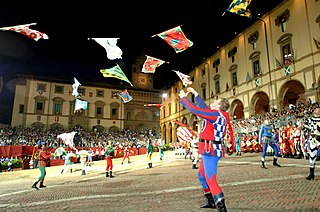 W
WThe art of flag throwing dates back to medieval guilds. A guild's banner or flag was considered a symbol of purity, and as such it was not allowed to touch the ground.
 W
WFlair bartending is the practice of bartenders entertaining guests, clientele or audiences with the manipulation of bar tools and liquor bottles in tricky, dazzling ways. Used occasionally in cocktail bars, the action requires skills commonly associated with jugglers. It has become a sought-after talent among venue owners and marketers to help advertise a liquor product or the opening of a bar establishment. Competitions have been sponsored by liquor brands to attract flair bartenders, and some hospitality training companies hold courses to teach flair techniques.
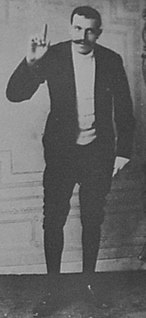 W
WA flatulist, fartist, or professional farter is an entertainer often associated with a specific type of humor, whose routine consists solely or primarily of passing gas in a creative, musical, or amusing manner.
 W
WMagic, which encompasses the subgenres of illusion, stage magic, and close up magic, among others, is a performing art in which audiences are entertained by tricks, effects, or illusions of seemingly impossible feats, using natural means. It is to be distinguished from paranormal magic which are effects claimed to be created through supernatural means. It is one of the oldest performing arts in the world.
 W
WMagic, which encompasses the subgenres of illusion, stage magic, and close up magic, among others, is a performing art in which audiences are entertained by tricks, effects, or illusions of seemingly impossible feats, using natural means. It is to be distinguished from paranormal magic which are effects claimed to be created through supernatural means. It is one of the oldest performing arts in the world.
 W
WAn impressionist or a mimic is a performer whose act consists of imitating sounds, voices and mannerisms of celebrities and cartoon characters. The word usually refers to a professional comedian/entertainer who specializes in such performances and has developed a wide repertoire of impressions, including adding to them, often to keep pace with current events. Impressionist performances are a classic casino entertainment genre.
 W
WA jester, court jester, or fool was a member of the household of a nobleman or a monarch employed to entertain guests during the medieval and Renaissance eras. Jesters were also itinerant performers who entertained common folk at fairs and town markets, and the discipline continues into the modern-day, where jesters perform at historically-themed events.
 W
WA Kobzar was an itinerant Ukrainian bard who sang to his own accompaniment, played on a multistringed bandura or kobza.
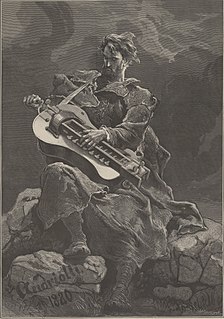 W
WThe lirnyk were itinerant Ukrainian musicians who performed religious, historical and epic songs to the accompaniment of a lira, the Ukrainian version of the hurdy-gurdy.
 W
WThe location manager is a member of the film crew responsible for finding and securing locations to be used, obtaining all fire, police and other governmental permits, and coordinating the logistics for the production to complete its work. They are also the public face of the production, and responsible for addressing issues that arise due to the production's impact on the community.
 W
WA master of ceremonies, abbreviated MC or emcee, is the official host of a ceremony, staged event, conference, convention, or similar performance.
 W
WA minstrel was a medieval European entertainer. Originally describing any type of entertainer such as a musician, juggler, acrobat, singer or fool, the term later, from the sixteenth century, came to mean a specialist entertainer who sang songs and played musical instruments.
 W
WA monologist, or interchangeably monologuist, is a solo artist who recites or gives dramatic readings from a monologue, soliloquy, poetry, or work of literature, for the entertainment of an audience. The term can also refer to a person who monopolizes a conversation; and, in an obsolete sense, could describe a bird with an unchanging, repetitive song.
 W
WA musician is a person who composes, conducts, or performs music. According to the United States Employment Service, "musician" is a general term used to designate one who follows music as a profession. Musicians include songwriters who compose music as well as write lyrics for songs, conductors who direct a musical performance, or performers who perform for an audience. A music performer is generally either a singer who provides vocals or an instrumentalist who plays a musical instrument. Musicians may perform on their own or as part of a group, band or orchestra. Musicians specialize in a musical style, and some musicians play in a variety of different styles depending on cultures and background. A musician who records and releases music can be known as a recording artist.
 W
WThe NBC Page Program is a 12-month paid fellowship at the NBCUniversal's studios in New York City and Universal City, California. Over the course of one year, pages gain exposure to various areas of the NBCUniversal portfolio. Pages contribute to various teams while on business, consumer and content assignments. East Coast pages also give tours and work in audience services at NBC Studios in New York City. Notable people who began their careers as NBC pages include Regis Philbin, Michael Eisner, Ted Koppel, and Aubrey Plaza.
 W
WA party princess is a person who entertains children at birthday parties, often dressed as different Disney characters. The most common party princess costumes are Elsa, Cinderella, Aurora, and Ariel. These types of princess character entertainers are usually hired through children's birthday party entertainment planners. Party princesses generally perform at private birthday parties for young girls: they sing, dance, and play with the girls, all the while maintaining a party theme based on the character they are dressed up as.
 W
WA poker dealer distributes cards to players and manages the action at a poker table.
 W
WA promotional model is a model hired to drive consumer demand for a product, service, brand, or concept by directly interacting with potential customers. Most promotional models are conventionally attractive in physical appearance. They serve to make a product or service more appealing and can provide information to journalists and consumers at trade show and convention events. Promotional models are used in motorsports, other sports or at trade shows, or they can act as "spokesmodels" to promote a specific brand or product in advertisements.
 W
WRedcoat is the name given to frontline staff at Butlins holiday camps in the UK. A Redcoat has duties ranging from adult entertainer or children's entertainer to stewarding.
 W
WA rhapsode or, in modern usage, rhapsodist, refers to a classical Greek professional performer of epic poetry in the fifth and fourth centuries BC. Rhapsodes notably performed the epics of Homer but also the wisdom and catalogue poetry of Hesiod and the satires of Archilochus and others. Plato's dialogue Ion, in which Socrates confronts a star player rhapsode, remains the most coherent source of information on these artists. Often, rhapsodes are depicted in Greek art, wearing their signature cloak and carrying a staff. This equipment is also characteristic of travellers in general, implying that rhapsodes were itinerant performers, moving from town to town. Rhapsodes originated in Ionia, which has been sometimes regarded as Homer's birthplace, and were also known as Homeridai, disciples of Homer, or "singers of stitched lays."
 W
WA ring girl is a woman who enters the ring between rounds of a combat sport, carrying a sign that displays the number of the upcoming round. Ring girls are often seen in boxing, kickboxing and mixed martial arts.
 W
WA scop was a poet as represented in Old English poetry. The scop is the Old English counterpart of the Old Norse skald, with the important difference that "skald" was applied to historical persons, and scop is used, for the most part, to designate oral poets within Old English literature. Very little is known about scops, and their historical existence is questioned by some scholars.
 W
WThe Shamakhi dancers were the principal dancers of the entertainment groups that existed in Shamakhi up to the late 19th century. These groups worked similarly to tawaifs.
 W
WA showgirl is a female dancer or performer in a stage entertainment show intended to showcase the performer's physical attributes, typically by way of revealing clothing, toplessness, or nudity.
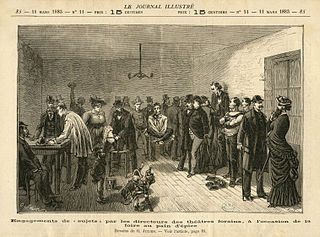 W
WShowman can have a variety of meanings, usually by context and depending on the country.
 W
WA skomorokh was a medieval East Slavic harlequin, or actor, who could also sing, dance, play musical instruments and compose for oral/musical and dramatic performances. The etymology of the word is not completely clear. There are hypotheses that the word is derived from the Greek σκώμμαρχος ; from the Italian scaramuccia ; from the Arabic masẋara; and many others.
 W
WA stunt performer, often referred to as a stuntman or stuntwoman, is a trained professional who performs daring acts, often as a career. Stunt performers usually appear in films or on television, as opposed to a daredevil, who performs for a live audience. When they take the place of another actor, they are known as stunt doubles.
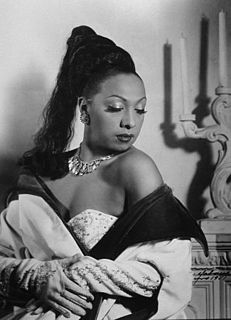 W
WA vedette is the main female artist of a show derived from cabaret and its subcategories of revue, vaudeville, music hall or burlesque. The purpose of the vedette is to entertain and captivate the public. The vedette has to know how to sing, dance and act on stage. Particularly accomplished artistes are considered super vedettes or first vedettes. Vedettes often appear alongside groups of dancers, flashy and revealing costumes, magicians, comedians, jugglers, or even performing animals. Vedettes specializing in burlesque generally do striptease and may also perform nude on stage.
 W
WVoice acting is the art of performing voice-overs to represent a character or provide information to an audience. Performers are called voice actors/actresses, voice artists, voice talent, voice-over artists, or voice-over talent. Voice acting is recognised as a specialized dramatic profession in the United Kingdom, primarily due to the BBC's long tradition of radio drama production.